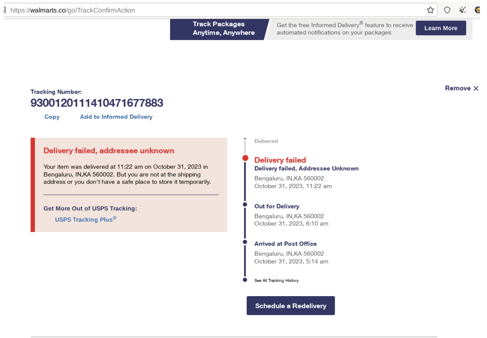 Taking traditional “delayed package” scams up a notch, new phishing and smishing attack campaigns are leveraging freemium DNS services to avoid detection by security solutions.
Taking traditional “delayed package” scams up a notch, new phishing and smishing attack campaigns are leveraging freemium DNS services to avoid detection by security solutions.
In some ways, the old adage “there’s nothing new under the sun” seems to be holding up. Take the latest USPS impersonation scam identified by domain monitoring vendor Bolster. It follows many of the same steps and uses similar tactics as any of the USPS scams I’ve covered before. The recipient was made aware of a delivery failure and when walking through the “Reschedule a Delivery” steps, are asked for payment details.

Source: Bolster
But what makes this particular scam interesting is the work done behind the scenes to avoid detection based on IP address or domain name. According to Bolster, to give them as much time to operate on a given malicious USPS-impersonated website as possible, scammers are registering malicious domains and pointing their DNS to freemium services like alviy.com – this service allows anyone to sign up with an email address and they can setup 3 host names. They also host their malicious sites on SaaS platforms like clever-cloud.com which make it possible to do so with a free trial.
Remember, it’s not just individuals that are shipping during the holiday season. Organizations are doing this as well, making this scam of particular risk. If the threat shifts from attempting to collect payment details to something more relevant like downloading a piece of malware or providing corporate credentials, then that is even more cause for concern.
In any case, anyone receiving emails like this (regardless of whether it centers around a tracking, order, or invoice number) reminds us to practice good cyber hygiene such as new-school security awareness training – dictates that you manually visit the legitimate site and attempt to validate the inbound email claims.
KnowBe4 enables your workforce to make smarter security decisions every day. Over 65,000 organizations worldwide trust the KnowBe4 platform to strengthen their security culture and reduce human risk.
 Here's how it works:
Here's how it works:




